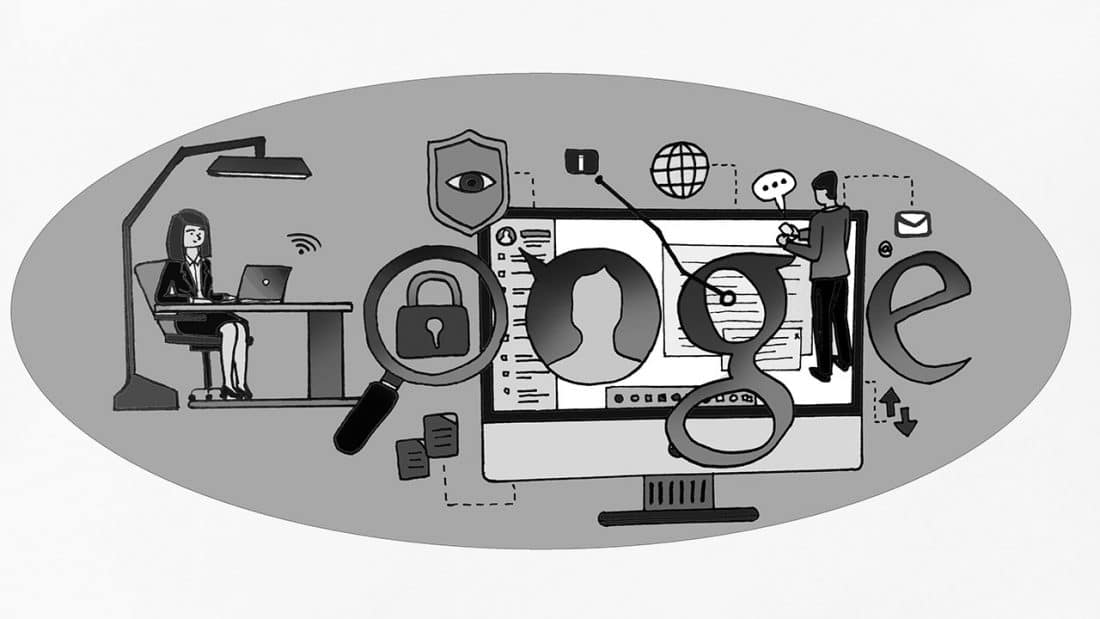Google knows everything: What does it know about you?
We use Google for almost everything, and this doesn’t make it so hard to think that Google is everywhere—an omnipresent entity that seems to know exactly what we are thinking of buying so that online ads would start to be oddly specific.
The question of whether the internet is watching us or not is not new. It’s been with us for a while even before commerce boomed online, and it is for the main reason that it’s true.
Now, the question is: how much does Google know us? And should we be worried?
You might be a little skeptical about this because what does a multi-billion dollar empire got to do with your personal information?
Actually, a lot.
Big-bang data theory
Simply put, this is the algorithm that turns your data into monetized analyzation of your data, which can be attained through cookies. Big data is a field that treats, approaches to dissect, deliberately separate data from, or generally manage informational collections that are excessively enormous or complex to be managed by customary information preparing application programming.
Some websites like Yahoo! and MSN allow an average of 64 cookies to get the information of the user in online behavior. But interestingly, Google itself doesn’t show the number of cookies it uses in their privacy and terms.
What is your personal data, even?
All the things you input such as your accounts, your basic data including name, address, and contact numbers aren’t just what your data are made of.
Your location histories, search-engine queries, the selfies you upload, even the way you tap onto your smartphone, and other harmless and mundane activities all consist your “personal data”.
These information they gather from you can be used for academic research, hackers, law enforcement, and foreign nations—and of course, for companies who are dying to know your deepest desires, or your grocery shopping list.
You don’t follow ads, but they follow you.
Go away, Google
Don’t Track Us, a site made by internet privacy company DuckDuckGo, outlines the lurking, lingering giant that is Google:
- Google trackers are sneaking on 75% of the websites. This implies that they are not just following you around. Likewise, they’ve been also following you on the sites that you visit.
- Google uses your data so that ads will follow you. They will let those advertisers follow you around two million websites and apps.
- Your own personal data will not remain in Google indefinitely. It can be subpoenaed by lawyers, including civil cases like divorce. Google answered over 100,000 requests in 2017 alone.
Apparently, Google gathers and weaves your search history, IP address, and area into your own online character. Social media websites and other unknown websites frequently show promotions from outsiders, which utilize the online personality to make a profile for the client (age, sexual orientation, interests, physical attributes) and afterward give them with related advertisements all over the place. It’s just like magic. Creepy, complex magic.
$0.0005 = Your data
According to Chris Palmer, the tech director of the Electronic Frontier Foundation, “You’re getting a free service, and the cost is information about you”.
Way back in 2013, the Financial Times made an interactive calculator, wherein your data is calculated to be sold for $0.0005. But if the sale is massive, say, 1000 people, the price will be higher at $0.50.
Certain achievements and milestones in an individual’s life bring significant changes in purchasing behaviors, whether that is turning into a parent, moving homes, getting ready for marriage, purchasing a vehicle, or experiencing a separation. For $0.26 per individual, purchasers can get to arrangements of individuals with explicit well-being conditions or taking certain solutions.
***
People are very protective of their personal details in the online world. We are not blind to the fact that on the web, our privacy is never truly protected. Yet, it is still boggling to discover how fragments of ourselves, identity, activities, and preferences, are a part of a capitalistic purpose.
This is close to knowing that even if you’re away from your computer or smart phones, somewhere in the digital realm, a version of you exists.
Google knows you so well, try to know them too.




